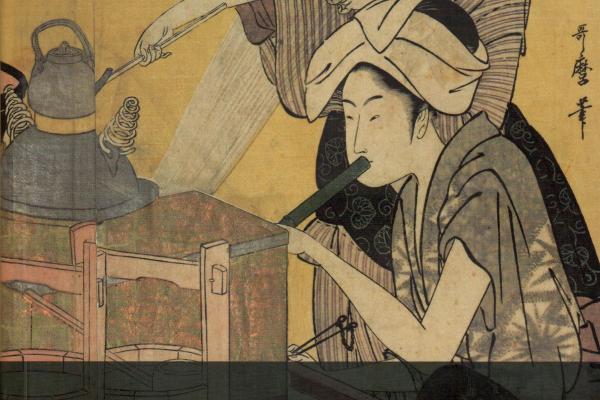
The Institute for Japanese Studies presents:
Sumie Jones
Professor Emerita
Japanese and Comparative Literature
Indiana University, Bloomington
"Gender, Class, and Subversion in Male Homoerotic Narratives of the Early Edo Period"
Flyer:
Abstract: The Tokugawa shogunate allowed no space for sexual relations within its social strata of samurai, farmers, artisans, and merchants. So-called “notorious places” (akusho)—the theatre district and Yoshiwara brothel quarters—were set outside the respectable boundaries of the city and inhabited by persons uncategorized in the Tokugawa class structure. Debates on the relative values of “nyoshoku” (love of women) and “nanshoku” (love of men) grew into theories of each “Way” and prose fiction featured the two separate Ways of love. While Yoshiwara-based fiction tamed heterosexuality by teaching polished manners, nanshoku books championed violent, untamed masculinity among samurai. By analyzing Ihara Saikaku’s The Great Mirror of Male Love (Nanshoku Ōkagami) and a few other works of fiction, this lecture considers the power dynamic those works create between the senior and junior lovers, between the narrator and the reader, and, ultimately, between men and women. Images will be shown on PowerPoint.
Bio: Sumie Jones is Professor Emerita of Japanese and Comparative Literature and Residential Fellow of the Institute for Advanced Study, Indiana University, Bloomington. A specialist of eighteenth-century East-West comparative arts with a focus in Edo-period Japan, she has authored some fifty journal articles and book chapters in her fields of study and coedited proceedings of the International Comparative Literature Association as well as special issues of Poetica (No. 5. 1999), The Yearbook of Comparative and General Literature (Vol. 54, 2008), and other scholarly journals. With an interest in crime and modernity in Edo and Meiji narrative, she has recently translated Baba Bunko’s Shirokoya Scandal, Shunkintei Ryūō’s The Bad Girl Prefers Black and Yellow Plaid, Sanyūtei Enchō’s The True View of Kasane Precipice, and Kanagaki Robun’s Takahashi Oden. Currently, she directs a collaborative project on translating early modern Japanese literature funded by the National Endowment for the Humanities, of which two of the three volumes have been published.
Free and open to the public
This lecture event is supported in part by the OSU Department of East Asian Languages and Literatures and by a U.S. Department of Education Title VI grant to The Ohio State University East Asian Studies Center.
